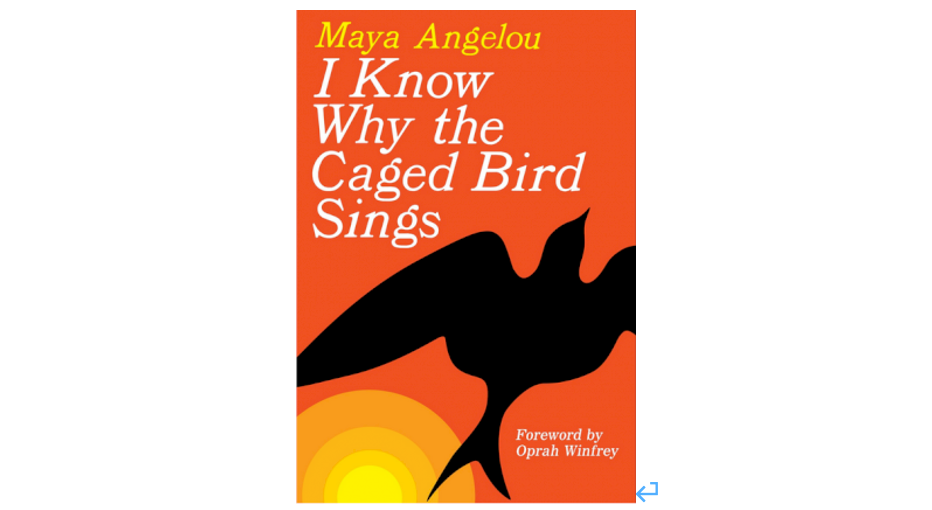I Know Why The Caged Bird Sings is not merely a memoir; it is a soaring elegy of resilience and identity, woven through the poignant narrative of Maya Angelou’s turbulent youth. The book masterfully intertwines themes of racism, trauma, and empowerment, all encapsulated by the metaphorical journey of the caged bird yearning for freedom. This complex memoir is both a testament to the indomitable spirit of a young girl and a profound commentary on the sociocultural dynamics of the American South.
To grasp the essence of Angelou’s work, one must delve into its metaphorical heart. The caged bird, a recurring motif, symbolizes the stifling conditions imposed on marginalized communities. The bird’s incessant chirping reflects a yearning not just for physical freedom, but for emotional and psychological liberation. Throughout the book, readers witness Angelou’s evolution from a voiceless child to a confident woman who ultimately claims her right to sing. This metamorphosis is striking; it highlights the transformative power of words and self-expression as vehicles of liberation.
The narrative begins with young Maya, who bears the weight of displacement as she and her brother are sent to live with their paternal grandmother in Stamps, Arkansas. This shift marks the catalyst for her profound awakening. In Stamps, the stark realities of racial prejudice reveal themselves in vivid, unsettling ways. The sheer cruelty displayed by the townspeople shapes Maya’s worldview and forces her into a painful consciousness. As Angelou poignantly recounts her experiences of discrimination, readers are forced to confront the systemic injustices that perpetuate cycles of oppression.
As a young girl, Maya grapples with her sense of self-worth, constantly measuring her value against the societal norms that dictate beauty, intelligence, and acceptance. The dissonance between her innate brilliance and the debilitating stereotypes surrounding her race and gender leads to a pervasive sense of inadequacy. This inner struggle is beautifully articulated in Angelou’s prose, which oscillates between the dread of her environment and the flickers of hope she encounters. Interestingly, the juxtaposition between despair and resilience provides a deeply analytical layer to the memoir, prompting readers to ponder the broader implications of identity construction amidst societal constraints.
Angelou’s relationship with her mother, Vivien Baxter, unfolds as one of the most dynamic aspects of the memoir. Baxter is portrayed as a fiercely independent woman who challenges social norms, embodying a complex tapestry of strength and fragility. The narrative poignantly captures the ambivalence in Maya’s feelings toward her mother, oscillating between admiration and resentment. This duality reflects the intricate ties that bind mothers and daughters, particularly in a world rife with adversity. Ultimately, it’s this relationship that catalyzes Maya’s exploration of her own identity, leading to an awakening that is both deeply personal and universally resonant.
The role of literature emerges as a significant theme, acting as both a sanctuary and a tool for defiance in Maya’s narrative. The beauty of classic literature stands in sharp contrast to her harrowing reality. Reading becomes an act of rebellion; it fuels her imagination and fosters a sense of agency that is historically denied to women of color. Angelou’s affinity for the written word illuminates its power to transcend boundaries, urging readers to recognize literature as a means of survival. In the face of oppression, it is often through storytelling that individuals craft their identities and share their truths.
The pivotal moment of Maya’s life occurs when she contends with her own sexuality and experiences trauma that leaves an indelible mark on her psyche. This moment serves as a stark reminder that the journey to self-acceptance is fraught with pain. Angelou does not shy away from the brutality of her experiences; rather, she confronts them head-on, showcasing the resilience required to reclaim one’s narrative. The intersection of trauma and empowerment is eloquently portrayed, underscoring that such hardships do not define a person but rather contribute to their complexity.
The climax of Angelou’s journey unfolds as she embraces her multifaceted identity. By the time she becomes a mother, she stands at the crossroads of her inherited trauma and her aspirations for a better future for her child. This delineation evolves into a broader reflection on the cyclical nature of oppression and the hope for transformation. Angelou’s poignant reflections on motherhood resonate deeply, illuminating the challenges and triumphs of forging a path for the next generation. The enduring legacy of her experiences communicates a powerful message: that hope often arises from the ashes of despair.
In conclusion, I Know Why The Caged Bird Sings stands as a monumental work that transcends the confines of a simple autobiography. It delivers an intricate tapestry of human experience, reflecting the brutal realities of racial and gender oppression while simultaneously celebrating the transformative power of resilience and creativity. Through her masterful use of metaphor, Angelou captivates the reader, inviting them to ponder the significance of freedom in its myriad forms. This memoir not only encapsulates the struggles of an individual but also serves as a rallying cry for the collective journey towards liberation.
Ultimately, Maya Angelou’s narrative is a testament to the enduring strength of the human spirit. The caged bird may sing in confinement, but it yearns for the vast expanse of skies and possibility. Her memoir leaves readers with the hopeful reminder that even in the face of adversity, the journey towards self-discovery and empowerment is not only attainable but essential. When we embrace our stories, we find our voices, and in learning to sing, we can break free from our cages.
